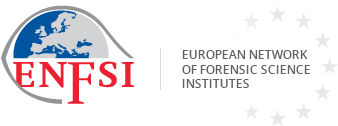2012: Christina Bertler
Biography
Christina Bertler was born in Borås, Sweden, on March 27, 1964. She graduated in analytical chemistry at the Linköping University in 1986. Her thesis was focused on profiling of drugs. After graduation she started to work as a chemist at an agricultural laboratory and moved on to the Faculty of Cell Biology within the Health University of Linköping. She started her employment at the Swedish National Laboratory of Forensic Science (SKL) in 1990.
The employment at SKL started in the Drugs Unit where Christina Bertler worked as a forensic chemist mainly with drugs profiling cases. She was appointed the Head of the Drugs Unit in 1993 and later becoming a Deputy Director of SKL in 1998. She was responsible for successfully introducing quality assurance at the Drugs unit and achieving accreditation for frequently performed examinations. As a Deputy Director she was responsible for the development and implementation of a new case and document handling system for SKL that needed to be in place before January 2000. She also became responsible for the coordination of quality assurance work and the project of developing and implementing a competence assurance system at SKL. During the Swedish Presidency of EU 2001 she participated in the Swedish delegation in the Drugs Working Group. Since 2003 she has been a Senior Adviser at SKL responsible for quality and competence assurance as well as coordination of international activities that SKL participates in. In 2006 she became a board member of Eurolab Sweden and since 2010 she holds the position of vice chairman. Additionally, Christina Bertler was a national expert in the Police Co-operation Working Party (PCWP) during the Swedish EU Presidency in 2009 and actively participating in the development of the Council Framework Decision 2009/905/JHA concerning accreditation of forensic laboratory activities and an expert coordinating Prüm issues under the Ad Hoc Information Exchange Group. In 2010 the Foreign Ministry appointed her as a member of the Advisory Council of Swedac (Swedish Board for Accreditation and Conformity Assessment), the national accreditation body, representing Eurolab Sweden.
Christina Bertler has been actively involved in ENFSI since 1997. She started in 1997 with becoming a member of the Drugs Expert Working Group and the later its Secretary. She is also a member of the Competence Assurance Project (CAP) and she has been its Chairperson since 2003. In the same year she was appointed Chairperson of the ENFSI Quality and Competence Committee (QCC) and ENFSI representative in European co-operation for Accreditation (EA) and International Laboratory Accreditation Cooperation (ILAC). Furthermore, she has been and still is responsible for a number of projects within ENFSI for example; project together with EA concerning development of “EA 5/03 Guidance on the implementation of ISO/IEC 17020 in the field of crime scene investigation”, Training of Technical Experts (EU co-funded Monopoly Project 2009) and in cooperation with ILAC revising the “ILAC G19:2002 Guide for Forensic Science Laboratories”, and in arrangement of several seminars such as, “Accreditation Useful for Everyone” 2006, “Skills and Good Practice Crimes Scene Investigation in Europe” 2006, “Why use Proficiency Tests and Collaborative Exercises?” 2008, “Quality Issues in the Forensic Process- for the European Accreditation Bodies” 2009 and “Competence Assurance” 2010.
Christina Bertler is active in matters concerning the development of quality and competence assurance for all ENFSI members. She strongly advocates the importance for ENFSI to be thriving in the forefront with continuous development and improvements while also making sure that all members receive support in developing quality assurance systems and achieving accreditation for frequently performed case work. She acted, together with former Co- ENFSI Secretary Judy van Overveld, as a program manager 2007-2011 for “European Mentorship for Forensic Accreditation- EMFA” with the aim of non-accredited laboratories twinning with accredited laboratories to become ready for accreditation in at least to specialist fields. The project was successful, so in 2011 she was appointed the position of project manager, together with ENFSI Secretary Wim Neuteboom, to run another mentoring project EMFA2.
